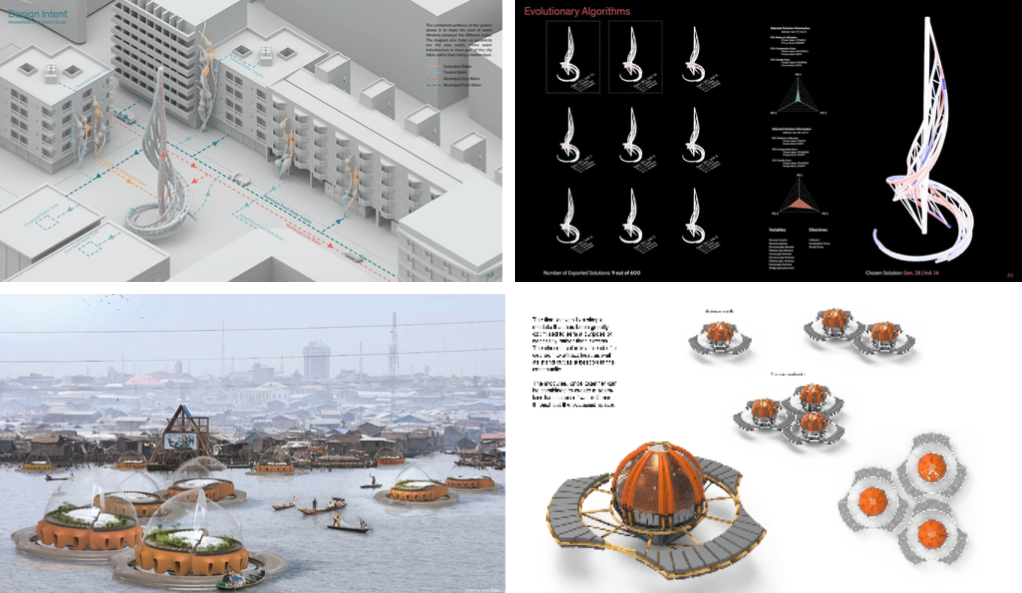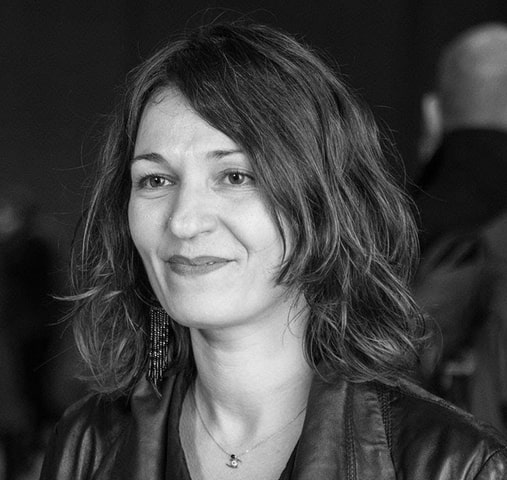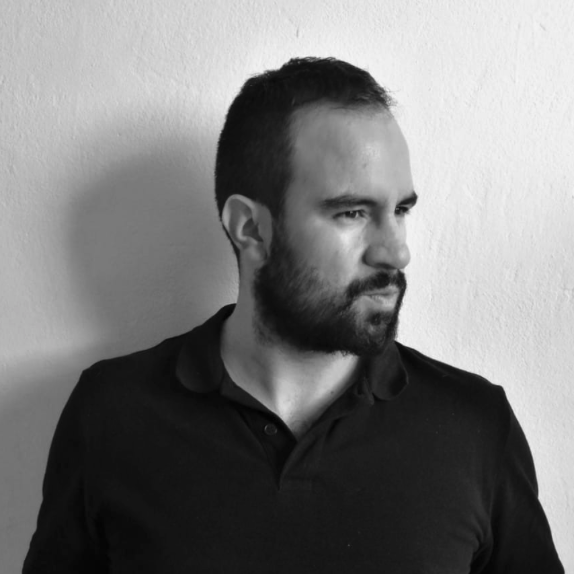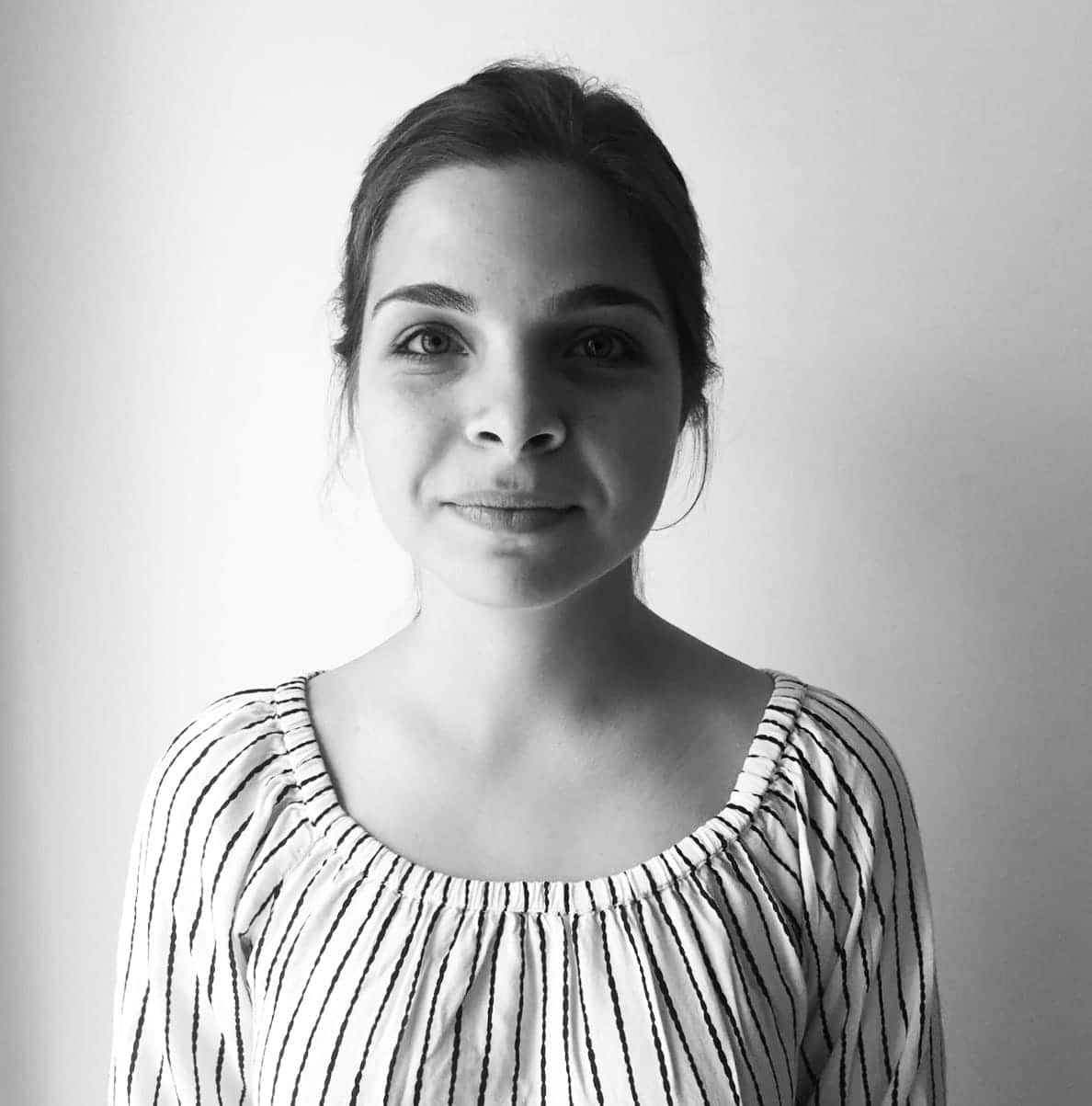DIGITAL MATTER
Materialising Circular Design
Seminar Faculty: Areti Markopoulou & David Andres Leon
Faculty Assistant: Nikol Kirova

Credits: CO2 filtering tower, IAAC Digital Matter 2018/19
Undoubtedly, the building industry accounts for an overwhelming part of the dire effects that produce climate change and the current global warming crisis. In practice much of this effect is due to anachronic design strategies which range from designing with unsustainable materials to the massification of building components that are one-use only. Contributing to this effect is a lack of information and accountability in the design process: Architects often make design decisions without being fully informed about the impact of their choices.
In contrast, as put into evidence by the recent covid crisis, buildings nowadays must have an adaptable capacity to change use, scope and even form, disrupting previous conceptions of the time-span of constructions and provoking daring challenges for adaptive architecture, design for disassembly and providing a smart repurpose of one-life materials that would otherwise go to waste.
As a response to this, the Digital Matter studio focuses to tackle this challenge with advanced digital technologies of Computational Design, Material Computing, Human-Computer Interaction, and Artificial Intelligence coupled with the latest tools in Digital and Robotic Fabrication. The studio introduces a model of materially Responsive & Circular Architecture that presents unique possibilities for designing novel performances and dynamic metabolisms in the building industry.
Starting from allocating problems and opportunities in the local context, students will aim to identify potential resources that can be upcycled into performative and adaptive building components for different architectural features. Students will dive deep into analyzing material opportunities that are embedded into the fabrication process, creating a coherent and informed narrative of the material life-span while using advanced computation techniques and digital fabrication in order to establish workflows to design more sustainable and contextualized buildings with them.
Rather than creating buildings that are static, consuming and contaminating, the Digital Matter Materializing Circular Design Agenda 2021-22 will develop novel material, design and manufacturing solutions for adaptive buildings that are able to change state and shape, generate resources, minimize negative environmental impact and achieve complexity and high aesthetics through performances that resemble biological and natural organism’s operation.
The design studio researches the implementation of computed, active or zero emissions material systems coupled with responsive technologies for the creation of dynamic built spaces that respond, breath, filter, biodegrade, or feed the soil and eventually change shape and state.
The aim is to develop design, material and manufacturing systems that aim to close or limit material and resource loss, while having the potential to minimize waste, using it as a resource in itself.

Credits: Design for Disassembly in Circular Buildings, IAAC Digital Matter 2018/19
Students will be physically prototyping and computationally designing architectural proposals that are driven by principles of performance, upcycling, and design for disassembly:
Novel material and performative prototypes of Buildings, Skins and Structures that are able to close material and resource loops will be the outcome of the final projects.
Advanced Computational design for digitizing material performance and origin, simulate structural tectonics and thermodynamics or analyzing big data of performance with Artificial Intelligence will be the tools to Materialize Circular Design.
Digital fabrication with a focus on modular/discrete elements, robotics and additive manufacturing will be explored for the construction and prototyping of the novel circular building systems.

Credits: Water Upcycle and water filtering towers in neighbourhoods, IAAC Digital Matter 2019/20
The [DM] method of investigation follows a rigorously experimental approach and progresses in complexity from small-scale material sampling to the production of 1:1 scale architectural components and prototypes.
Faculty

Dr. Areti Markopoulou is a Greek architect, researcher and urban technologist working at the intersection between architecture and digital technologies. She is the Academic Director at IAAC in Barcelona, where she also leads the Advanced Architecture Group, a multidisciplinary research group exploring how design and science can positively impact and transform the present and future of our built spaces, the way we live and interact. Her research and practice focus on redefining the architecture of cities through an ecological and technological spectrum combining design with biotechnologies, new materials, digital fabrication and big data. Areti is co-founder of the art/tech gallery StudioP52 and co-editor of Urban Next, a global network focused on rethinking architecture through the contemporary urban milieu. She is the project coordinator of a number of European Research funded Projects on topics including urban regeneration through data science, circular design and construction and multidisciplinary educational models in the digital age.
Areti has founded and currently chairing the Responsive Cities International Symposium in Barcelona and she has served as a curator of international exhibitions such as Future Arena and On-Site Robotics (Building Barcelona Construmat 2017-19), Print Matter (In3dustry 2016), HyperCity (Shenzhen Bi-city Biennale, 2015) and MyVeryOwnCity (World Bank, BR Barcelona, 2011), while her work has been featured in exhibitions worldwide. Together with Lydia Kallipoliti, she has been appointed the Head Curator for the Tallinn Architecture Biennale 2022 on the theme of Edible; Or, The Architecture of Metabolism focusing on circular design principles for a productive and regenerative built environment.

David Andres Leon is an architect with focus on the research, training and development of computational tools for the AEC industry.
He is the Head of Computational Design of the Advanced Architecture Group and Director of the Master in Advanced Computation for Architecture & Design (MaCAD) at IAAC and he works with McNeel Europe providing support for third- party developers pushing the boundaries of interoperability and computational design globally. He is also part of the faculty of the Masters for Advanced Architecture in IAAC where he teaches in the Digital Matter studio alongside Areti Markopoulou. David also teaches programming for architects at the MPDA Masters programme of the UPC.
David holds a Master of Science Degree from the Institute for Computational Design and Construction (ICD) in Universitat Stuttgart and a Masters Degree in Advanced Design and Digital Architecture from the Escola Superior de Disseny i Enginyeria de Barcelona (Elisava). He has been involved in several research undertakings of which stand out his participation in German research platform FAT-LAB in Stuttgart and his collaboration as a research assistant in the Centre for Information Technology and Architecture (CITA) for the EU-Horizon 2020 Future and Emerging Technologies Proactive Action project Flora Robotica. David is also the co-author of various publications in the field of architectural research and robotics.
Faculty Assistant

Nikol Kirova is an interdisciplinary Bulgarian architect with an educational background in interior design, urban planning, and advanced architecture. Currently, Nikol is a teaching assistant and a researcher at IAAC, developing her PhD with a focus of her research is the integration of material innovation in design and architecture, as part of the IAAC-SWIN offshore PhD program, developed with the Swinburne University of Technology.
The common feature of her work is the search for alternative solutions for optimized construction, material informed design, and spatial communication. Her research interest lies in investigating how materiality in architecture and construction can be reestablished and propose better communication between the built environment and its inhabitants.
For a couple of years Nikol was developing Synapse, a smart material system for real-time urban flow data collection toward responsive environments and informed decision making. The novel research was awarded the Digital Matter and Intelligent Construction and the Artificially and Materially Intelligent Architecture excellence awards in 2018 and 2019.
